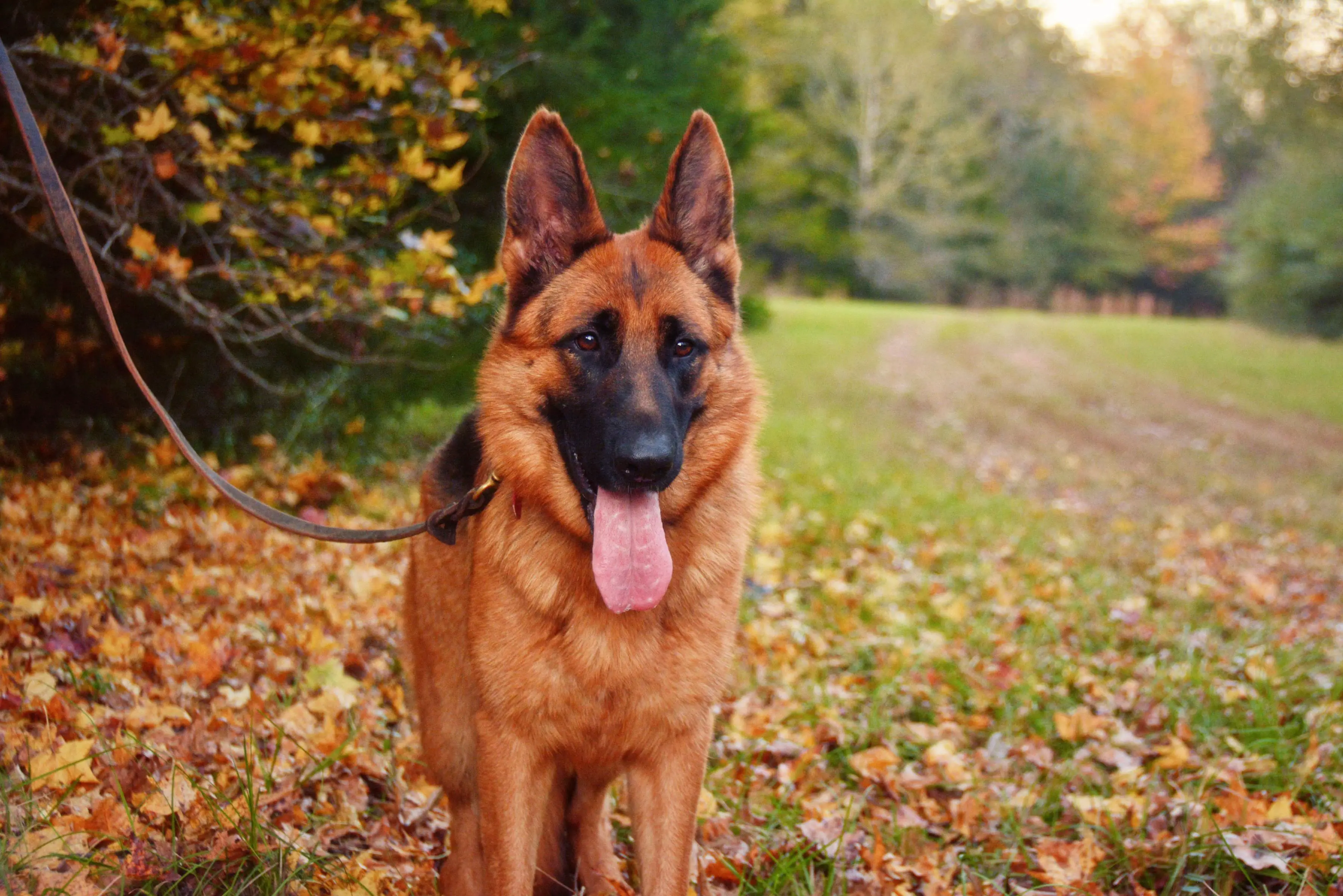Do German Shepherd Sleep At Night?
Do you have a furry German Shepherd friend at home and have been puzzled by their sleeping habits? Do they have a hard time drifting off at night, or do they snore louder than you do? Well, you’ve come to the right place. Here, we’ll dive into the topic of German Shepherds and their sleep patterns.
We will explore the various factors that affect your pup’s sleep, including their age, breed, and even their day-to-day activities. We’ll also uncover some helpful tips on how to establish a positive nighttime routine to ensure your four-legged friend gets the rest they need.
You’ll also discover some common German Shepherd sleep concerns, such as excessive barking or restlessness, and how to address them. Plus, we’ll delve into the health implications of sleep in German Shepherds, and why getting proper rest is vital to their overall well-being.
Get ready to discover everything you need to know about German Shepherd sleep habits. Let’s dive in!
German Shepherd sleeping patterns
German Shepherds are known to be active and alert, which may make one wonder if they sleep at all or just take short naps. However, the truth is that they do sleep, but it’s not in the same pattern as humans. German Shepherds have different sleeping patterns as they tend to sleep multiple times a day, both during the day and at night.
Most German Shepherds sleep between 12 to 14 hours per day, with puppies and senior dogs needing more sleep. However, instead of sleeping for an extended period like humans, they tend to nap for shorter periods and wake up intermittently. This sleeping pattern is typical of most canines, as it was inherited from their wolf ancestors.
As pack animals, German Shepherds have retained the hunting instincts of their wolf ancestors. They sleep in short intervals to ensure that they are always alert to protect their pack from predators. They can wake up and be active within a few seconds and be ready to respond to any danger.
In summary, German Shepherds sleep in short intervals multiple times throughout the day and night. Their sleeping pattern has been honed over time to help them stay alert to protect their pack. As a pet owner, it is essential to establish a consistent sleep routine with your dog to ensure they get enough rest to maintain good health.

Factors affecting German Shepherd sleep
Several factors can affect the quality and quantity of sleep German Shepherds get at night. First, physical exercise plays a significant role in aiding German Shepherds to sleep better. Dogs that do not engage in enough physical activity during the day tend to be restless and have difficulty falling asleep at night.
Secondly, the German Shepherd’s diet can have a direct impact on their sleep patterns. Foods rich in protein and carbohydrates can make them feel full and satisfied, reducing the likelihood of waking up hungry during the night.
Environmental factors also play a part in German Shepherd sleep patterns. The temperature of their sleeping area, noise levels, and the level of light in the room can all influence their sleep quality.
Additionally, anxiety and stress can disrupt the sleep patterns of German Shepherds. Loud noises, unfamiliar surroundings, or changes in their routine can trigger anxiety that can make it difficult for them to fall asleep.
Finally, age and health conditions like arthritis, hip dysplasia, or anxiety disorders may also impact the sleep patterns of German Shepherds. Owners must take note of their dog’s behavior and seek veterinary attention if they suspect any underlying medical issues are keeping their German Shepherd up at night.
Establishing a nighttime sleep routine
Establishing a nighttime sleep routine is crucial for German Shepherds to have a good night’s rest. It involves creating a conducive environment for sleeping, ensuring that they have a comfortable bed, and getting them into a consistent routine.
Just like humans, dogs thrive on structure and routine. By establishing a consistent bedtime and wake-up time, your German Shepherd will get into the habit of sleeping and waking up at the same times each day. Make sure to stick to this routine even on weekends or holidays.
Creating a peaceful sleeping environment is also important. Keep the room quiet and dimly lit to set the mood for a restful sleep. Avoid using electronics in the bedroom as the blue light can disrupt their sleep.
Additionally, providing plenty of exercise during the day can help your German Shepherd feel tired and ready for sleep at night. A tired pup is more likely to fall asleep quickly and stay asleep through the night.
Establishing a nighttime sleep routine for your German Shepherd is a simple but important step that can significantly improve their sleep quality and overall health.
Common German Shepherd sleep concerns
As a German Shepherd owner, you may be concerned about whether your furry friend is sleeping well or experiencing any sleep-related problems. Here are some common German Shepherd sleep concerns that you may encounter:
- Restlessness and Agitation: German Shepherds are energetic dogs that require daily exercise and mental stimulation. If they don’t get enough activity during the day, they may become restless and agitated at night, which can disrupt their sleep.
- Separation Anxiety: Some German Shepherds experience separation anxiety, which can make it difficult for them to feel settled and relaxed when left alone. Separation anxiety can lead to insomnia or interrupted sleep patterns.
- Health Problems: Certain health conditions, such as joint pain, arthritis, or allergies, can make it difficult for German Shepherds to get comfortable and fall asleep.
- External Stimuli: Loud noises, such as a passing ambulance or fireworks, can startle a German Shepherd and make it difficult for them to settle down and fall asleep. Other external stimuli, such as bright lights or changes in temperature, can also affect their sleep quality.
- Boredom: German Shepherds are intelligent and active dogs that need regular mental stimulation. If they don’t have enough toys or activities to keep them occupied, they may become bored, which can lead to sleep disturbances.
It’s essential to understand and address any sleep concerns that your German Shepherd may have. Keep an eye on your dog’s behavior and take note of any unusual patterns or signs indicating that you should consult with your veterinarian for further guidance.
Health implications of sleep in German Shepherds
Sleep is just as vital for German Shepherds as it is for humans. If your German Shepherd is not getting adequate sleep, their overall health and wellbeing can be negatively affected. Consistent sleep deprivation can cause a range of health issues, including obesity, weakened immune system, and even depression.
Sleep deprivation in German Shepherds can also affect their behavior and performance. Lack of sleep can cause them to become lethargic, less responsive, and less alert. Additionally, their cognitive functions, learning, and memory could be affected too, making it harder for them to focus and learn new skills.
A good night’s sleep is essential to maintain a healthy and functioning body, and the same is true for German Shepherds. Therefore, it is crucial to ensure that your German Shepherd is sleeping well and getting the right amount of sleep. It is also vital to establish a consistent sleep routine for your German Shepherd to maintain good sleep hygiene.
If your German Shepherd is experiencing sleep-related issues, it’s best to consult with a veterinarian to ensure that the root cause is identified, and the appropriate actions are taken to ensure their overall health and wellbeing are maintained.
Conclusion
In conclusion, German Shepherds are an intelligent and active breed that requires a good night’s sleep. Understanding their sleeping patterns and establishing a nighttime sleep routine can greatly benefit their overall health and well-being.
Factors such as exercise, diet, and environment can greatly affect a German Shepherd’s sleep quality.
Some common sleep concerns, such as separation anxiety, can be addressed with proper training and attention. Consistent sleep patterns and ample rest can also benefit a German Shepherd’s physical health, helping to prevent common issues such as obesity and joint problems.
So, if you’re a proud German Shepherd owner, make sure to prioritize their sleep and create a comfortable sleep environment to ensure they are well-rested and happy.



